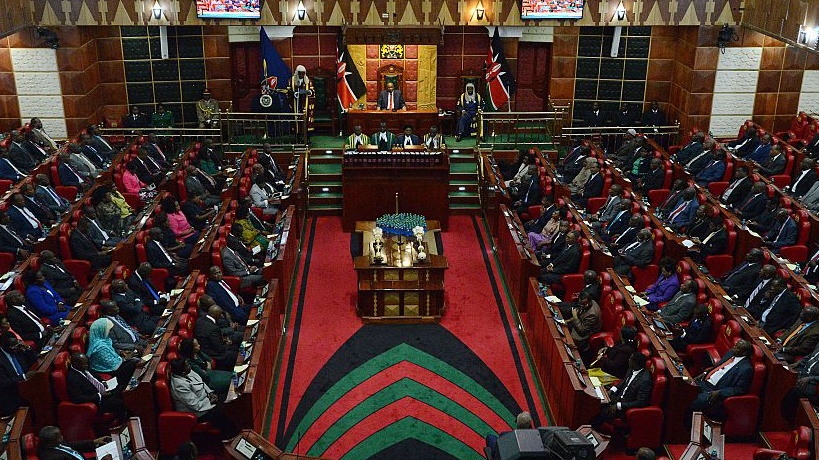Kenya’s highest judge advised President Uhuru Kenyatta to dissolve the country’s male-dominated Parliament, citing a constitutional provision on gender quotas.
The provision in Kenya’s constitution states no more than two-thirds of any elected body can be of the same gender, but Al Jezeera reports that just 22% of the parliament seats belong to women in the lower house of Parliament. Chief Justice David Maraga said the politicians’ failure to implement the legislation was an apparent sign of “lackadaisical attitude and conduct” in regards to the two-thirds gender rule.
“There is no doubt that the dissolution of parliament will cause inconvenience and even economic hardship. The fact that Kenya is in the midst of the coronavirus pandemic only exacerbates the potential impact of the decision,” Maraga wrote.“Yet that is the clear result Kenyans desired for parliament’s failure to enact legislation they deemed necessary. We must forget that more often than not, there is no gain without pain.”
According to Bloomberg, Kenya’s Parliament is made up of the National Assembly and the Senate. The assembly consists of 349 members with 47 of the seats mandated to be held by women who are elected by local counties. The Senate consists of 67 members and 16 of them are women nominated by the various political parties.
Since 2012, court rulings have mandated Parliament adhere to legislation encouraging gender equity or risk being dissolved, according to The Standard. Previous attempts have failed as female members of Parliament have accused their male counterparts of deliberately influencing efforts to advance their cause.
Dismas Mokua, a political analyst in Nairobi, told Bloomberg that in the event Parliament isn’t dissolved, any legislation it approves following the advisory could be challenged in court.
“Reading from the political mood today in Kenya, I doubt whether the president will take the risk of dissolving parliament tomorrow,” Mokua said. “He will cause unnecessary tension in Kenya and he is trying to work on his legacy.”
Speaker Justin Muturi said he is against any motions to dissolve the group, saying that the common person will have to bear the cost of doing a fresh election.
“Dissolution of parliament is not something you just wake up and recommend,” he said. “There are too many ramifications.”
Speaker Muturi: Dissolution of parliament is not something you just wake up and recommend.
"It is 'Wanjiku' who will bear the cost of doing a fresh election."#TheGenderAgenda
@SmritiVidyarthi
pic.twitter.com/LXtrx3wf3B— NTV Kenya (@ntvkenya) September 21, 2020
While Kenyan politicians remain skeptical that the president will be compelled to take action, social justice groups believe the advisory was a big step in the fight for gender equity in politics.
“Whether the president dissolves parliament or illegally retains it in violation of the Constitution. It is important to remember this moment was made possible by the work of women activists, feminists & the queer community. We imagined it, we worked for it, we made it possible,” Marilyn Kamuru of the women’s collective #WeAre52pc tweeted.
Whether the president dissolves parliament or illegally retains it in violation of the Constitution. It is important to remember this moment was made possible by the work of women activists, feminists & the queer community. We imagined it, we worked for it we made it possible.
— #WeAre52pc (@marilynkamuru) September 21, 2020
According to the Kenya National Bureau of Statistics, women make up a third of the 2.5 million people working in the formal sector in 2019.
